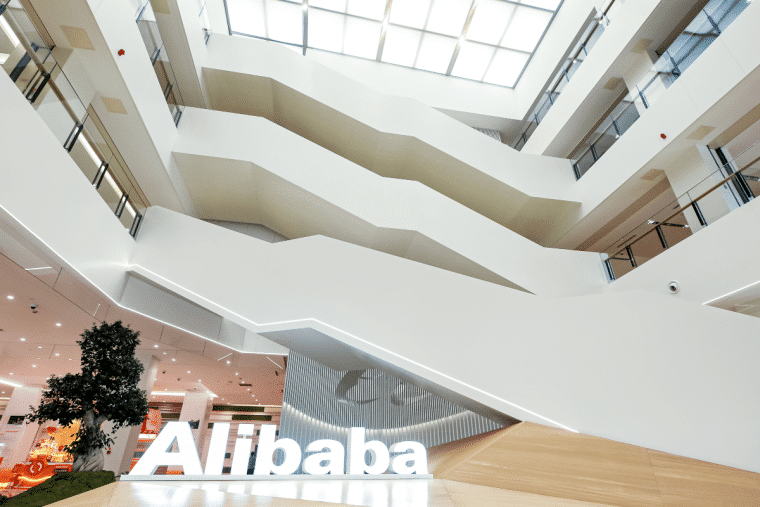
Chinese tech giant Alibaba has revealed that over 200,000 businesses have requested to test the company’s version of ChatGPT-style chatbot.
According to a recent report by state-owned Chinese media outlet China Daily, more than 200,000 enterprises have requested beta testing for Tongyi Qianwen, Alibaba’s artificial intelligence-powered large language model.
The model, announced on April 11, has the potential to be a strong competitor to OpenAI’s ChatGPT and other major players in the industry.
Zhang Yong, chairman and CEO of Alibaba Group and the CEO of Alibaba Cloud Intelligence, also announced the launch of the Tongyi Qianwen partnership program, which aims to co-create large language models to serve a range of different industries with partners.
According to the report, Alibaba Cloud has teamed up with seven intelligent technology and service providers, including Kunlun Digital Technology, LongShine Technology Group, China TransInfo Technology, and Yonyou Network Technology to develop tailored AI models.
“They will join hands with Alibaba Cloud to develop industry-specific AI models and bolster the application in fields like petrochemicals, electricity, transportation, hospitality, enterprise services, finance and telecommunications.”
Alibaba has recently revealed its AI large language model, and it plans to integrate it into all of its applicable businesses, joining the race for chatbot dominance.
The company is offering more enterprises access to the cloud to Tongyi Qianwen, providing the opportunity for their businesses to build customized large language models tailored to their specific needs.
How Are Chinese AI Chatbots Doing?
China has long been a leader in AI development. From facial recognition to self-driving cars, China is seen as a major player when it comes to the application of AI in real-world scenarios.
However, when it comes to AI chatbots, China still has a long way to go to catch up with the US-based OpenAI’s ChatGPT, which quickly became a hit with an estimated 100 million monthly active users just two months after its launch in November last year.
Despite the fact that the chatbot craze has taken over Chinese social media, major tech companies like Baidu and Alibaba have yet to release their own versions of the AI-based product.
Instead, users can only get access to limited trial versions or be placed on waitlists.
The Chinese government has recently released draft rules for regulating AI-generated content, a first of its kind in the country that targets fast-developing AI as domestic tech giants begin rolling out ChatGPT-style products.
China’s AI Development Forges Ahead Despite US Chip Export Rules
Despite US export restrictions on chip-to-chip transfer speeds, China’s AI industry continues to forge ahead. While the restrictions have impacted the development of AI technologies, they have not been much devastating.
LLMs powering AI models are too large to fit on a single chip. Instead, thousands of chips need to communicate with each other, which makes them a crucial ingredient in the development of such models.
Nvidia, a leading GPU manufacturer, has introduced the China-only H800 chip with a chip-to-chip speed of 400 gigabytes per second, according to a specification sheet seen by Reuters.
That is less than half the speed of Nvidia’s flagship H100 chip available outside China, which has a peak speed of 900 gigabytes per second.
Some in the AI industry believe that the difference in chip-to-chip speeds is not insurmountable.
Naveen Rao, CEO of MosaicML, a startup that helps AI models run better on limited hardware, estimates a system slowdown of 10-30%.
Rao believes there are ways to “get around all this algorithmically” and that the US speed limit will not be a “boundary for a very long time – like 10 years.”
Read More:
- CHIPS Act-Funded US Chipmakers Want to Maintain Presence in China
- Best AI Stocks to Invest in 2023
- Best AI Crypto Tokens & Projects to Invest in 2023
What's the Best Crypto to Buy Now?
- B2C Listed the Top Rated Cryptocurrencies for 2023
- Get Early Access to Presales & Private Sales
- KYC Verified & Audited, Public Teams
- Most Voted for Tokens on CoinSniper
- Upcoming Listings on Exchanges, NFT Drops